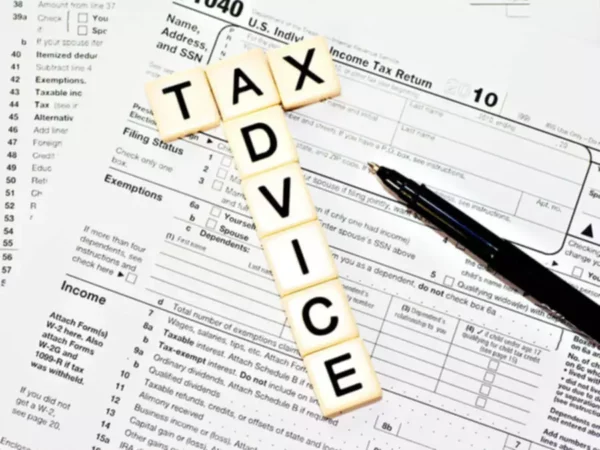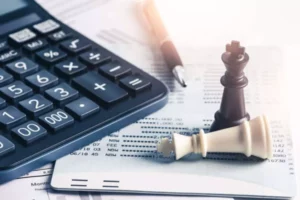Taxes are a necessary aspect of your company. If you are a business owner, you need to pay taxes on the income your business generates for you. Your accounting records and other paperwork might not be in perfect shape, but the sooner you start preparation, the less stressful it will be for you to fill out the tax return when the time comes. Today, we compiled a business tax preparation cheat sheet and some tips along the way to help you get started
Business Tax Preparation Checklist and Tips
Filling your tax returns as a business owner is not as difficult as it may seem. It all starts with some good preparation. So, what are all the things that you need to put in a binder when going to your tax preparer or getting ready to file the returns on your own?
Get ready ahead
First, if this is just the beginning of the year or you just started your business, it is really helpful to have a binder with a section for every month. All the expenses for the month will go inside the binder into a respective section. You might want to have separate sections for any investments into assets or big expenses you have during this time period, cash transactions as well as other documents.
Of course, all of this can be done electronically with separate folders for different items on your computer. YOU can also choose to use special accounting software that can even automatically generate a Balance sheet with all your assets and liabilities information, Cash flow statement, and Profit and loss statement.
Consult with a tax specialist
When it comes to business tax returns, doing the tax all by yourself will be a very difficult task to manage along with your business. Instead, hire or consult with a financial or tax expert on how your particular business type can save on taxes and what accounting records you should keep. Consulting with a specialist before you make any big business decision will save you money in the long run.
They will be able to help you with any sort of doubt you have regarding your financial decisions and how they are going to impact your tax returns. They are also always up to date on information in regards to tax updates and changes. After all, you do want to have any surprises when you file or after your tax returns are submitted to the IRS.
Last year’s business tax return
To make the whole tax returns filing process easier, have your business tax return for the previous year on hand. You will realize that you can simply copy a lot of the information because you probably did not change your business structure (Corporation, LLC, Partnership, etc.), the day you formed your partnership or chose to be taxed as an S Corp, and your federal tax ID number also stay the same.
You might be able to make the same deductions. In addition, you are probably using the same accounting method for tracking your financial transactions and your inventory. The information on ending balances from a Balance sheet on your last year’s business tax return will be the same as the beginning values on the Balance sheet of the current year. If you are filling on your own, you will also have some basis on what should go under each line and any large discrepancies in numbers will raise a red flag for you (and the IRS).
Business information
Just like you would need your personal information when filing your tax return, you need information on your business when filing a business tax return. If you cannot get information from last year’s return or you did not file a tax return for this business last time, then you will need your partnership agreement, articles of incorporation, or any other document that can serve as a source of information about your business. The tax form you will need to complete will depend on your business type (e.g. Partnership, LLC, etc.)
Accounting records
Your accounting records, obviously, are imperative when you are preparing to file taxes. As an individual dealing with finances, you probably know that you should be organized and track each detail of your financial activities big or small. If your bookkeeping records are not in order, it is important to gather all the information and organize it. When we talk about bookkeeping records, we are talking about your expenses and your income, as well as your inventory and other assets, payroll expense, and cash flows. So, go over your expenses and categorize them correctly, if necessary, compile all the receipts/records of all your cash transactions in one place, check that all your assets are recorded and depreciated, if applicable, properly, etc.
Doing this digitally using bookkeeping software or even an Excel spreadsheet saves you a lot of time and effort when the time for business tax preparation time comes around because your accounting records are all in one place and a lot of calculations can be done quickly using computer software. In fact, the accounting software can automatically generate your Balance sheet and other financial statements, which will serve as the basis of your tax return.
Payroll reports
Payroll expense is something every business has. Along with your accounting statements, payroll reports can also be useful as they can be a significant expense category for a company. Why would you need payroll information when completing the tax return? This is just another way to verify that your records reflect correct payroll and payroll tax expenses.
Bank statements
Reconciling the financial transactions in your general ledger and what you have on your bank and credit card statement on regular basis is a great way to not only check that everything is accurate but also consolidate your process, keep finances and tax preparation up to date. In any case, it is going to be helpful to have your bank and credit card statements either printed or easily accessible for whoever is going to be preparing the tax returns in case there is a need to check the information.
If you do not have good bookkeeping records, these statements will be your life-savers, unless you do a lot of cash transactions. On that note, try to minimize cash transactions, and if you pay something with cash, make sure to save a receipt. Also, have a business account set up specifically for tracking all your business expenses and income. Of course, statements from financial institutions will not provide you info on your assets, so you will need to prepare a Balance sheet based on other records.
Fixed asset purchases, asset depreciation, and dispositions
Although your bank statements can provide some information on the purchase of fixed assets, such as new equipment, automobiles, and machinery, and even reflect money coming in from the sale of such assets, they will not show asset depreciation. As you know, asset depreciation is an expense, so it will reduce your business taxable income along with reducing the carrying value of your assets over time.
If you have access to an updated record of all your assets of your business at the time of preparation, getting information on assets for tax preparation will not take any of your time because assets are listed right on your Balance sheet and asset depreciation, for instance, can be seen on the Income statement.
Vehicle information
If your business has cars, trucks, or any other vehicles that you or your employees use for business purposes, you can get additional deductions on your return. You will need to know how many miles you have driven only for your business (not personal). Alternatively, you can enter the total amount of the actual related expense on your return, such as insurance, gas, oil, maintenance and repairs, vehicle asset depreciation, so get all the receipts ready for the tax preparation.


















